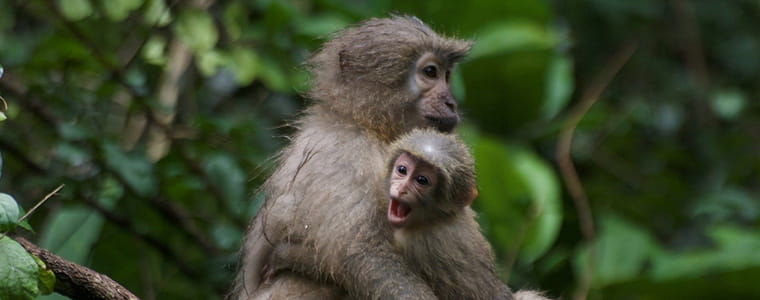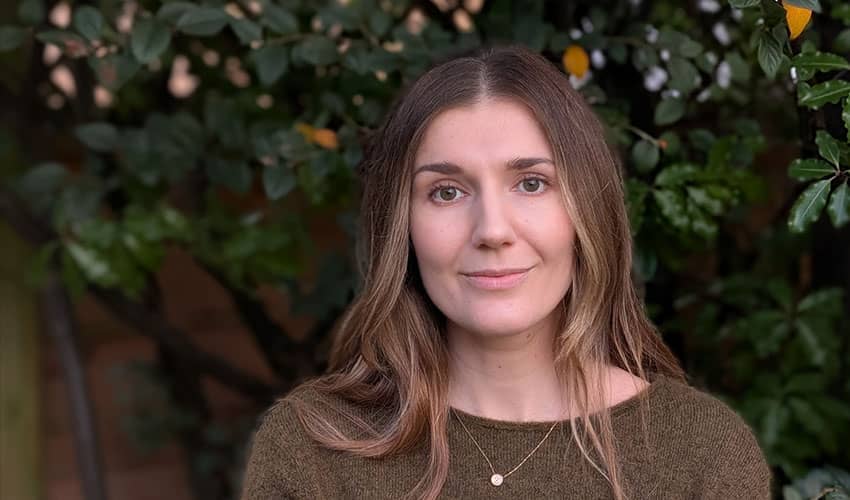Conservation plan could help endangered primates in Africa

A project co-led by the University of the West of England (UWE Bristol), Bristol Zoo and West African Primate Conservation Action is set to help protect nine species of primate found across Africa. A five-year plan that will be sent to the International Union for the Conservation of Nature (IUCN), and which begins in 2020, sets out measures to protect the endangered Mangadrills.
Mangadrills include nine groups of African monkeys: seven within the genus Cercocebus, also known as mangabeys, and three within Mandrillus, including the mandrill and the two sub-species described as drills. These primates inhabit an area that stretches from Senegal and Gabon in West Africa, all the way to the Tana River Delta in Kenya. Yet despite the wide range of their habitats, they are among some of the world's most threatened monkeys.
Dr David Fernandez, senior lecturer in conservation science at UWE Bristol who is co-leading the project, said: “These species are one of the least known primates, as there are very few people working on them. They are classed as 'endangered', except one 'critically endangered' and one 'vulnerable' by the IUCN. Although we know that in most cases their numbers are going down, for many we still don't know exactly where the populations are or how many are left.”
The plan lists a set of actions that could help conserve these monkeys, which live in forest areas. Although the measures are still being finalised, one could be to protect the Bioko drill (Mandrillus leucophaeus poensis) species from hunters on Bioko Island, in Equatorial Guinea, by blocking off access routes to protected areas which are used by hunters.
Said Dr Fernandez: “Most hunters enter the Caldera de Luba Scientific Reserve, a protected area in the South of Bioko where most Bioko drills live, using the only existing paved road. Setting up a checkpoint on it would help control poaching in that area and might constitute a plan that is achievable and could be highly effective.”
Another suggested action is to go into communities where primates raid sugar cane crops and are sometimes killed in retaliation. A solution, as set out in the plan, is to help communities to build appropriate fences to prevent this from happening.
As well as identifying what needs to happen to protect these animals, another goal of the action plan is to highlight the existence and plight of these animals.
One action is to set up ecotourism tours in locations like Bioko Island, where the primates have their habitats. Tourists would be able to spend the night in a tropical forest and go with local guides to view the monkeys up close.
Dr Grainne McCabe, head of Field Conservation and Science at Bristol Zoological Society, said: “This action plan is a genuine step forward in trying to save Mangadrill monkeys and we are really pleased to be working with the University of the West of England.
“Together we hope to promote awareness of these threatened species and encourage researchers, conservationists and governments to take the necessary actions to protect them.”
Related news

16 February 2026
UWE Bristol researchers awarded grant to explore impact of asset recovery on offenders
UWE Bristol academics have been awarded funding to explore of the impact of asset recovery on deterring offender behaviour and disrupting crime networks.

10 February 2026
Work by UWE Bristol lecturer features in Government’s National Cancer Plan
Work by a UWE Bristol academic has been included in the Government’s National Cancer Plan.

23 January 2026
On-demand minibus services beneficial in rural areas but face financial challenges, trials suggest
Trials of ‘demand responsive transport’ minibus services boosted connectivity for people in rural and suburban areas, according to a new report produced by UWE Bristol researchers.

18 December 2025
UWE Bristol professor appointed National Institute for Health and Care Excellence CEO
Jonathan Benger CBE, Professor of Emergency Care at UWE Bristol, has been appointed as the new chief executive officer of the National Institute for Health and Care Excellence (NICE).

17 December 2025
Findings revealed from first UK study into experiences of mothers who are survivors of rape pregnancy
UWE Bristol academics have revealed the findings of the first UK-based study of the experiences of mothers who are survivors of rape pregnancy.

11 December 2025
Social media influencer work is far more demanding than it looks, research finds
A study exploring the mental health impacts of social media influencer work has revealed that life online is far more demanding than it appears.

25 November 2025
UWE Bristol experts join film Q&A exploring music and melodrama
Academics will take part in the Cary Comes Home Festival, with a post-screening Q&A exploring music, melodrama and emotional storytelling in classic cinema.

17 November 2025
Urgent reform needed to support ambulance-delivered end of life care, study finds
More than three quarters (78 per cent) of paramedics sometimes fear doing the wrong thing when caring for people in the last year of life, new research has found.

13 November 2025
Bristol’s screen industry experiences “boom-and-bust cycle” after post-pandemic recovery, new research from UWE Bristol finds
New research from UWE Bristol provides detailed insight into Bristol's screen sector.

13 November 2025
New AI research to revolutionise animal welfare
A UWE Bristol research project will combine behavioural science and AI to create technology that understands not only what animals do, but how they feel.

10 November 2025
Lessons from Low Traffic Neighbourhoods will drive better public engagement, study finds
Lessons from Low Traffic Neighbourhoods have informed a new toolkit to improve engagement with the public on challenging local street issues.

06 November 2025
First-of-its-kind study aims to help more people spend their final days at home
A new study will explore how architectural design could support end-of-life care in domestic settings.






